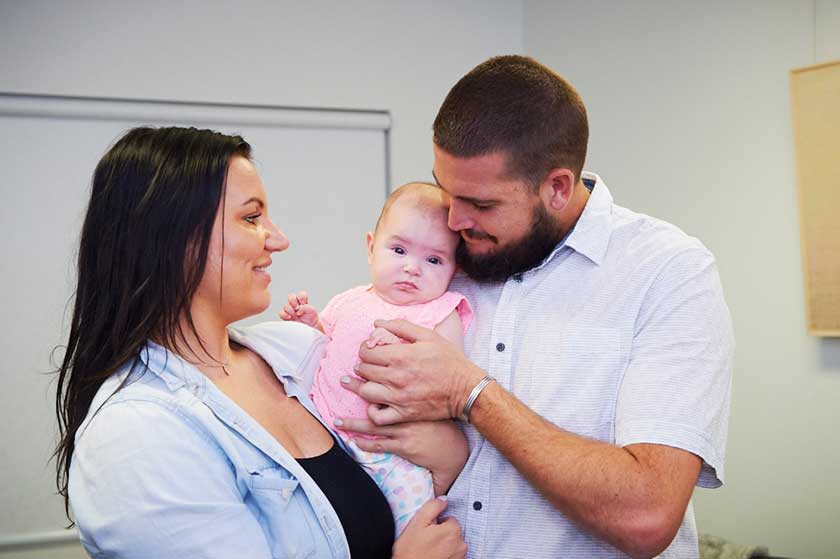Why is it important for fathers to have good emotional wellbeing when they welcome a new baby?
Just like new mothers, new dads find the experience of parenting exciting, rewarding, joyful but also highly stressful.
Dads with good emotional health and sound resilience are emotionally available to their children. Babies know their father’s voice and they are frequently reassured by it. After all they have been listening to it for some time while in their mother’s womb.
Babies want their fathers to be present in their life and form strong secure attachments to them as they do with their mother. Active, engaged dads do things differently with their baby than their mothers and that is exactly how babies want it. They change their nappies differently, talk to them differently and play with them differently. It adds to the rich tapestry of a baby’s early life experiences. Research shows that positive engagement from fathers can result in a child’s healthy adjustment and development of life-long resilience.
How can a father’s emotional wellbeing affect their baby?
We know that dads who are struggling with their emotional wellbeing, for example with untreated depression, interact with their children less effectively and less often. It is also far more common than experts previously thought, with about one in 10 men experiencing depression or anxiety.
Father’s struggling with anxiety and depression feel less engaged with everyone including their baby and are frequently too plagued by their distress to interact with others.
Babies feel this even if they don’t understand it and it can have a big impact. They are at much higher risk of developing their own emotional and behavioural struggles as they grow through the stages of childhood, adolescence and into adulthood.
What are some of the common concerns you hear from fathers about their emotional wellbeing?
Many dads do a lot of worrying and one of the things they worry about is their partner’s post-natal emotional health and wellbeing. Figures show that one in seven women experience post-natal depression at an intensity that affects their quality of life and/or their ability to effectively parent.
New mothers are frequently anxious, self-doubting and often feel inadequate and that they are not doing a good job. These common feelings and experiences go hand-in-hand with parenthood.
Most dads upon hearing these experiences want to provide reassurance and ways of “fixing” things. Sometimes what is needed is to sit quietly with the mother and listen to her fears and doubts.
However, if new mothers tell their partners that the above experiences are ongoing, intense or impacting then it’s time to sit up and take notice and seek support by talking with a GP.
What should I look out for in my partner?
- Does your partner frequently fear facing the day feeling as if she cannot go on?
- Does she seem consistently overwhelmed or irritable?
- Has she lost that sense of joy, the sense of pleasure in life?
- Does she have thoughts of harming herself?
These symptoms can be very hard to talk about and equally painful to hear but it could be one of the most important conversations you will have.
So, what can fathers do?
There are many sources of help and many starting points from mums and dads. Websites such as PANDA and Beyond Blue provide easy to read and highly informative fact sheets. Maternal and child health nursing services are also excellent as is the family general practitioner (GP).
It does not matter where you start the important thing is seek help sooner rather than later.
During pregnancy and after birth, a lot of attention is placed on a mother’s wellbeing – what should father’s do if they have a concern about their own health?
New dads experience mental health issues in ways that are both similar yet different to new mums. Everything I described about maternal mental health goes for paternal mental health as well.
Some of the factors that increase the risk of paternal mental health issues include:
- having a partner with perinatal anxiety or depression
- excessive work stressors
- past history of mental health issues.
Men manifest depression slightly differently to women also with less self-disclosure, increases in drug or alcohol usage, anger outbursts and social avoidance.
Many new dads fear revealing their struggles to their partners because they do not want to burden them yet their capacity to contribute to the family often decreases.
If this is happening the advice is the same; seek help by talking to your GP who can connect you to treatment and support services.







